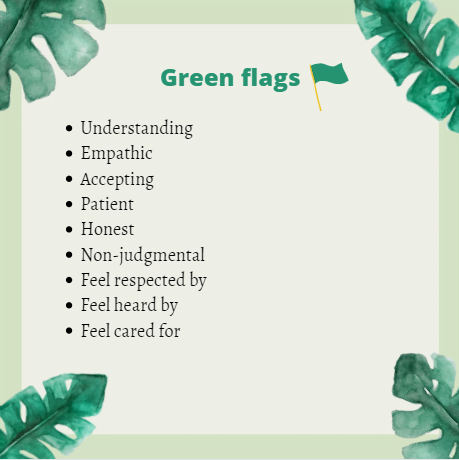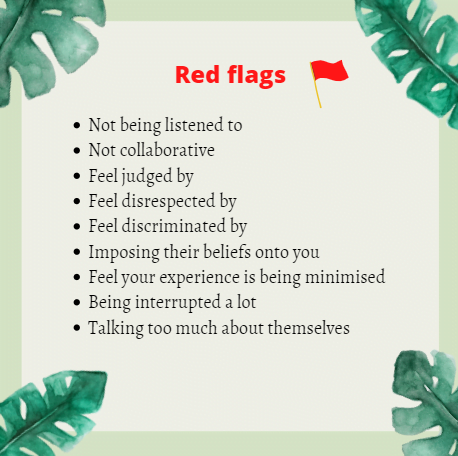How to choose the right therapist for you:
It can challenging to know what to look out for in a good therapist. It’s hard to tell by looking at someone’s qualifications or a picture. If you have had a bad experience with a therapist in the past, it can make it more difficult to reach out to another one. Here are some guidelines that may make it easier for you to identify a good therapist for you.
- Contact before meeting
Ask questions. Ask about their approach, their qualifications, their experience. With so many different models of therapy, there can be a lot of jargon language which can feel overwhelming. However, much research suggests it’s more so the relationship between the client and the therapist that makes therapy most effective, and not the particular model of therapy.
2. Check qualifications/accreditation
The main professional bodies for
therapists are:
- IACP
- IAHIP
- ICP
Ensure that your therapist is a member (student/pre-accredited/accredited) of one of these.
3. Try a session
If you feel reassured after the initial call/email, schedule a session together. With my first session with clients, I always advise that the first session is a “get to know” each other. It’s for us to collaboratively see if this is a good fit. Sometimes, it may be apparent after the first session. Other times, it may take some more sessions before it becomes clear.
4. Feel comfortable
Let’s face it, therapy sessions aren’t a barrel of laughs (although there can be some humour). There is bound is be some nervousness with sessions. However, there should be a feeling of comfort and trust with your therapist and perhaps even looking forward to seeing your therapist.
5. Professional
Your therapist should be professional in their approach. Some things may include starting and ending sessions on time, have your undivided attention (e.g. no distractions of phones), not talk about other clients to you etc.
6. Trust your gut
In life, there’s some people we click with and there are others that we don’t. This is the same with your therapist. Each therapist is unique. Notice how you feel with your therapist and listen to your gut. If you feel one therapist is not a good fit for you, it’s ok to shop around. This may seem like a lot of effort but it will be a better investment of your time and energy in the long run.
7. Other
Some other factors that are important to consider are location, cost, perhaps even gender (some people feel more comfortable with a female therapist, some prefer a male). Generally, the therapeutic relationship between you and the therapist is going to be the most crucial element. Remember it’s ok to say no and to try other therapists.





